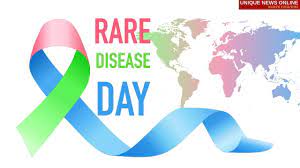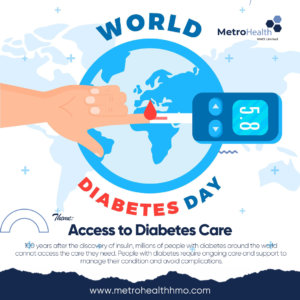Yearly every September 21st is World Alzheimer’s Day (WAD), it was launched in 2012 and it is commemorated to raise awareness and educate about Alzheimer’s disease and dementia.
The campaign theme for 2021, is “Know Dementia, Know Alzheimer’s” which is all about the “power of information” and the main highlight would be the warning signs of dementia and the necessity of getting a diagnosis as soon as possible.
Dementia is a progressive syndrome that leads to deterioration in cognitive function (i.e., the ability to process thought) beyond what might be expected from the usual consequences of biological ageing. It affects memory, thinking, orientation, comprehension, calculation, learning capacity, language, and judgement. Consciousness is not affected.
Dementia results from a variety of diseases and injuries that primarily or secondarily affect the brain, such as Alzheimer’s disease or stroke. Dementia is caused by damage to or loss of nerve cells and their connections in the brain. Depending on the area of the brain that’s damaged, dementia can affect people differently and cause different symptoms of cognitive and physiological changes.
WARNING SIGNS OF DEMENTIA
- Memory Loss that disrupts daily life.
- Challenges in planning or solving problems.
- Difficulty completing familiar task at home, at work or leisure.
- Confusion with time or place.
- Trouble understanding visual images and spatial relationships.
- Problems with words in speaking or writing.
- Misplacing things and losing the ability to retrace steps.
- Decreased or poor judgement.
- Withdrawal from work or social activities.
- Changes in mood and personality.
Alzheimer’s disease is a progressive neurologic disorder that causes brain atrophy and cell death. Alzheimer’s disease is the most common cause of dementia; a continuous decline in thinking, behavioural and social skills that affect a person’s ability to function independently.
Alzheimer’s disease is not a normal part of ageing, it is believed to be caused by a combination of genetic, behavioural, and environmental factors that impact the brain. It is still unknown what triggers Alzheimer’s disease, but there are factors that increase the risk.
RISK FACTORS OF ALZHEIMER’S DISEASE
- Age: the likelihood of developing Alzheimer’s disease doubles every 5 years after you 65years, there could be early onset as well, and it can affect people from around the age of 40 years.
- Family history: If several of your family members have developed dementia over the generations, and particularly at a young age, you may want to seek genetic counselling for information and advice about your chances of developing Alzheimer’s disease.
- Deposition of amyloid, tau, which are protein substances that forms plague around the brain cells.
- Decreasing levels of neurotransmitters (acetylcholine); involved in sending messages, or signals, between brain cells.
- Down’s syndrome: the genetic changes that cause Down’s syndrome can also cause amyloid plaques to build up in the brain over time, which can lead to Alzheimer’s disease in some people.
- Head injuries
- Cardiovascular disease
- Smoking
- Obesity, diabetes, high blood pressure, high cholesterol level.
TYPES OF ALZHEIMER’S DISEASE
- Early-onset Alzheimer’s. This type happens to people who are younger than age 65. Often, they’re in their 40s or 50s when they’re diagnosed with the disease. It’s rare; up to 5% of all people with Alzheimer’s have early-onset. People with Down syndrome have a higher risk for it. Scientists have found a few ways in which early-onset Alzheimer’s is different from other types of the disease. People who have it tend to have more of the brain changes that are linked with Alzheimer’s. The early-onset form also appears to be linked with a defect in a specific part of a person’s DNA: chromosome 14. A form of muscle twitching and spasm, called myoclonus, is also more common in early-onset Alzheimer’s.
- Late-onset Alzheimer’s. This is the most common form of the disease, which happens to people of age 65 and older. It may or may not run-in families. So far, researchers haven’t found a particular gene that causes it. No one knows for sure why some people get it, and others do not.
- Familial Alzheimer’s disease (FAD) is a form of Alzheimer’s disease that is linked to genes. In families that are affected, members of at least two generations have had the disease. FAD makes up less than 1% of all cases of Alzheimer’s. Most people who have early onset Alzheimer’s have FAD.
SYMPTOMS OF ALZHEIMER’S DISEASE
Symptoms of Alzheimer’s begin slowly and get worse over time. At first, people have a hard time remembering recent events, though they might easily recall things that happened years ago.
- Forgeting about recent conversations, names, events, places, and objects.
- Misplacing items
- Having trouble thinking of the right word
- Asking questions repetitively
- Showing poor judgement or finding it hard to make decisions
- Becoming less flexible and more hesitant to try new things
- Mood changes, such as increasing anxiety or agitation, or periods of confusion.
- Increasing confusion and disorientation – for example, getting lost, or wandering and not knowing what time of day it is, trouble focusing.
- Obsessive, repetitive, or impulsive behaviour
- Delusions (believing things that are untrue) or feeling paranoid and suspicious about carers or family members
- Problems with speech or language (aphasia)
- Disturbed sleep.
- Difficulty performing spatial tasks, such as judging distances, they might forget how to dress themselves, feed themselves, and use the toilet.
- Seeing or hearing things that other people do not (hallucinations)
- Difficulty eating and swallowing (dysphagia)
- Difficulty changing position or moving around without assistance
- Weight loss – sometimes severe
- Unintentional passing of urine (urinary incontinence) or stools (bowel incontinence)
- Gradual loss of speech
- Significant problems with short- and long-term memory
PREVENTION OF ALZHEIMER’S DISEASE
There is no proven way to prevent it, but there’s a lot you can do to lower your chance of getting it.
- Quit smoking
- Keeping alcohol to a minimum
- Eating a healthy/ balanced diet
- Exercise regularly
- Knowing your numbers: making sure your blood pressure, blood sugar, cholesterol and body mass index is checked and controlled through regular health tests.
CONCLUSION
There is no cure for Alzheimer’s disease, hence, it is advised to do away with predisposing factors. There are medicines that seem to slow down its progress, especially in the early stages, others can help with mood changes and other behaviour problems.










